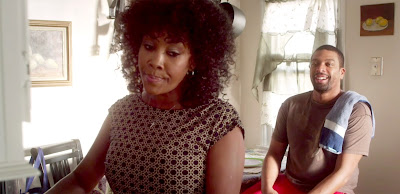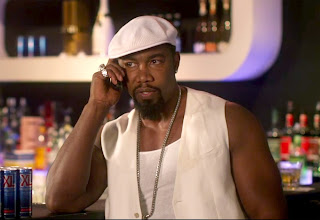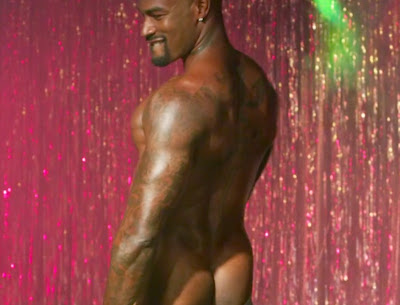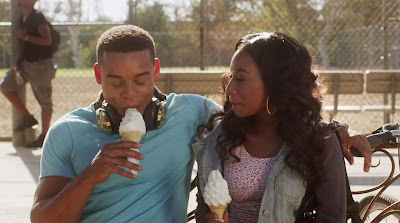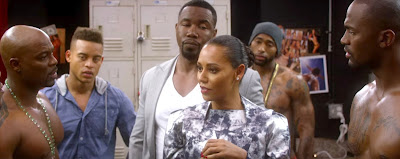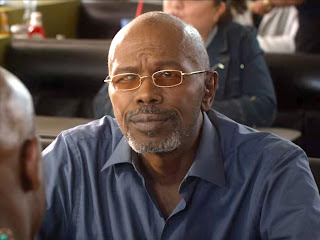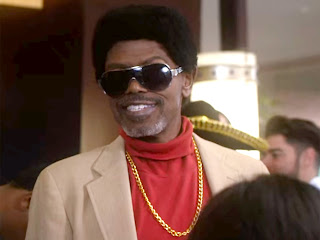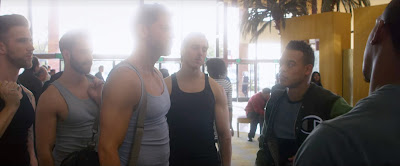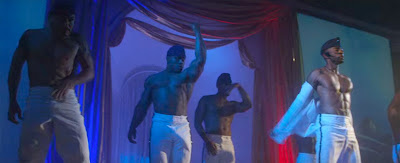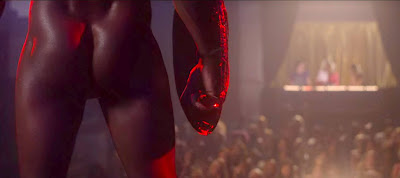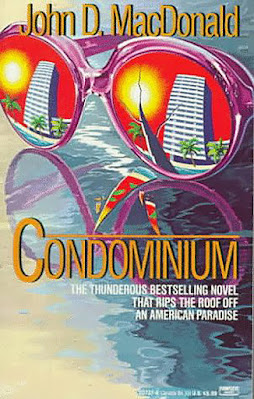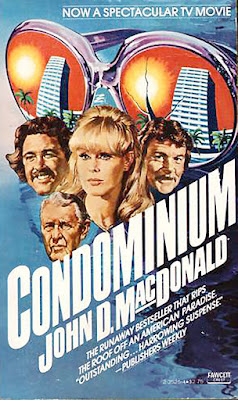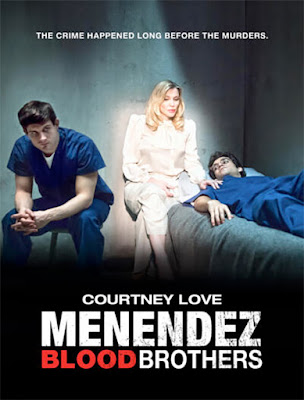 |
| A notorious 1990s murder case AND Courtney Love? Yes, please. |
And ignorant I might have remained were it not for a subscription to the Lifetime Movie Club purchased last Christmas. I was scrolling through the “Ripped from the Headlines, and Beyond” category when I encountered MENENDEZ: BLOOD BROTHERS. The title didn’t grab me but the name above it did: Courtney Love. Oh, hell yeah!
Love is cast as Kitty Menendez, the wife of entertainment executive José Menendez, both of whom were murdered in 1989 by their sons Lyle and Erik Menendez. Casting her as a murder victim tracks. After all, who hasn’t heard the name Courtney Love uttered in a news broadcast and waited for the phrase “found dead today”? But Love—who, among other things, revealed in a 1992 Vanity Fair interview that she used heroin while pregnant (vehemently denied at the time the article was published, then Love later confirmed that yes, she did); was arrested on drug charges in 1994 on the same day her husband Kurt Cobain shot himself; was arrested for an “air rage incident” at London’s Heathrow Airport in 2003 and subsequently banned from Virgin Airlines; was arrested on her 40th birthday for failure to appear in court and later taken to Bellvue Hospital in NYC; had a temporary restraining order issued against her in 2009 prohibiting any contact with her daughter Frances Bean Cobain; and was evicted from her Manhattan townhouse in 2011—as a Beverly Hills housewife? This has got to be seen.
 |
| “I’m not a woman. I’m a force of nature.” — Courtney Love |
While it is kind of jarring to see Love, now so surgically altered she looks more like Tori Spelling in The Courtney Love Story than Courtney Love, wearing tie neck blouses, tending to the flowers in her greenhouse and using a treadmill, there is little in her performance that pushes Menendez: Blood Brothers into the Valhalla of camp TV. She has her moments, though, like when she tries to defuse the tension between her husband José (Benito Martinez, appropriately menacing) and their son Erik (Myko Olivier) by blurting out, “I can’t believe Lucille Ball died. I really did love Lucy.”
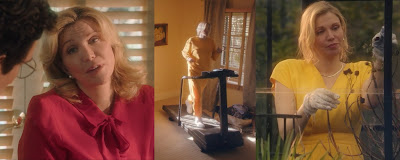 |
| The taming of Courtney Love. |
Later, she suggests she and her sons could go see When Harry Met Sally, approximating the same level of eagerness she might display if responding to an invitation to do a couple lines with Tarantino while at Sundance. The delightful weirdness of Love feigning enthusiasm for a romcom is dashed, however, when the boys mockingly suggest their mother instead go see that movie with her girlfriends. I actually felt sorry for Love at this moment, imagining this was the same response she got from her castmates when she asked if she could tag along with them for lunch.
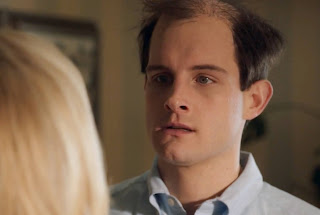 |
| With his bad toupee removed, Lyle Menendez is transformed into a young Peter Boyle in Young Frankenstein. |
I had zero remorse for the shit-eating grin on my face while watching Love’s desperate struggle to find her inner Shelley Winters during her death scene.
Evidently it is possible to under- and over-act at the same time. Her bug-eyed approximation of terror borders on parody, while her unconvincing screaming had me wondering if she thought they were still in rehearsal. Love sticks the landing, though, sounding genuinely terrified as she pleads for her life. Still, I found it hard to separate Love from the character she was playing. You know if Courtney Love were ever staring at the end of a gun barrel (Wait, has she? A quick Google search tells me no, not yet) she’d go down fighting, screaming words not suitable for Lifetime TV.
We’re not even 30-minutes in before José and Kitty are murdered, but don’t worry, the producers aren’t done with their high-profile cast member just yet. Throughout the rest of the movie, we get Ghost Kitty — and, on occasion, Ghost José — who appears to Erik, sometimes to beg his forgiveness for not helping him (“I was weak”), sometimes to comment on the love letters he receives in jail (“I’m glad to see you like a girl. I never thought you’d have a normal relationship.”) She even sings a few lines of “Beautiful Dreamer,” her raspy rendition making me think she could pull off an album of Marianne Faithfull covers (🤞).
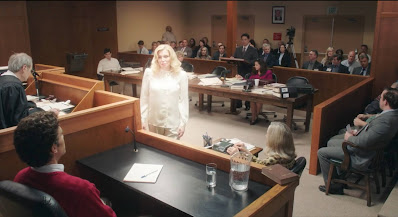 |
| The specter of Courtney Love haunts the Menendez trial. |
As for the movie as a whole, Menendez: Blood Brothers is pretty much what you’d expect from a Lifetime movie. It’s cheap looking (the sets for the Menendez’s home look pretty cramped for a Beverly Hills mansion), and the 90-minute runtime means we don’t get more than a Cliff Notes account of the murder and sensational trial. Consequently, the movie has little patience for nuance and subtlety, often at the expense of good taste. At its ickiest are the scenes where José is sexually abusing Erik. Not content to just show José entering his son’s room and closing the door behind him, Menendez: Blood Brothers takes us inside the bedroom. And though the action does take place offscreen (there are still some lines you can’t cross on basic cable), the Foley artist leaves little doubt as to what Erik is doing.
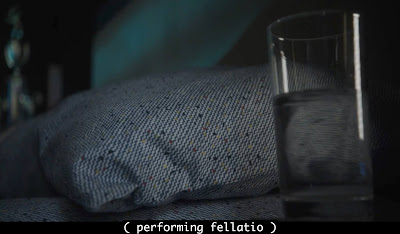 |
| As does the closed captioning. |
Not quite as uncomfortable but still questionable are the scenes that seem to exist solely to show off Olivier’s hot bod, such as when he’s strip searched upon being booked into jail or working out in the yard. Ordinarily I wouldn’t object to gratuitous man-ass (you go, Lifetime!), but do you really want your audience thinking I’d hit that while watching your docudrama about sexual abuse and murder? I guess one could argue that co-directors Fenton Bailey and Randy Barbato (yes, the same team behind the documentaries The Eyes of Tammy Faye and Inside Deep Throat) are simply acknowledging that the physical attractiveness of the real-life brothers played a part in the nation’s fascination with the Menendez trial, but, no, sorry, it’s strictly for audience titillation.
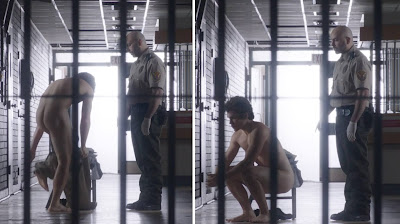 |
| Am I being a hypocrite, showing screen shots of Myko Olivier nude after calling the scene out for being exploitative? Yes. Do I care? No. |
Olivier, BTW, is quite effective in the role of Erik, and a good thing, too, as most of the movie is told from his POV. Totorella doesn’t fair quite as well in the role of Lyle, that awful hairpiece distracting us from his performance. Speaking of wigs, the one Meredith Scott Lynn wears as defense attorney Leslie Abramson is reminiscent of Barbra Streisand’s perm years, and though Scott Lynn’s performance is perfectly adequate I couldn’t help thinking it would be worth the sacrifice of a testicle to see Barbra as Abramson, never mind that’s she’s too old for the part. Barbra Streisand and Courtney Love in the same cheesy Lifetime movie—Oh! I just came.
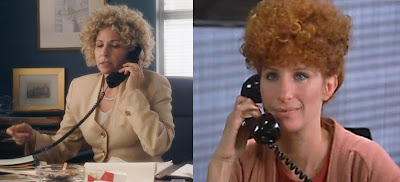 |
| Meredith Scott Lynn is fine as defense attorney Leslie Abramson, but the thought of Barbra in this role is positively moisture-inducing. |
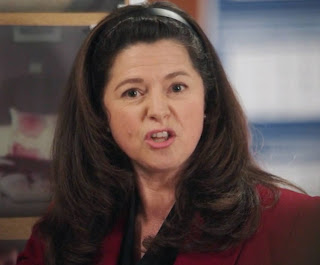 |
| The prosecuting Karen demands a word with the Menendez brothers’ manager. |


